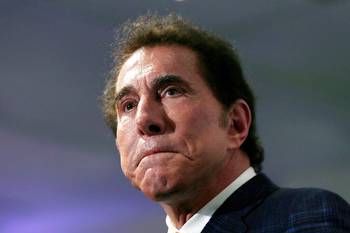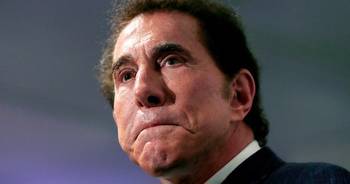Las Vegas casino boards falling short on diversification


Rose McKinney-James, a board member of MGM Resorts International since 2005, poses in Las Vegas Friday July 29, 2022.
Sunday, Aug. 14, 2022 | 2 a.m.
The boards of Las Vegas’ biggest casino companies count few minorities among their directors, despite initiatives to increase diversity.
Of the 53 directors on the boards of the top six gaming companies — MGM Resorts International, Caesars Entertainment, Wynn Resorts, Las Vegas Sands, Red Rock Resorts and Boyd Gaming — six are people of color.
Close to 70% of the directors are white men. Four directors are Black: Darnell Strom of Wynn Resorts, John Bailey of Boyd Gaming and Rose McKinney-James and Alexis Herman of MGM Resorts.
While large companies have put more emphasis on diversity in the past decade, more work remains, McKinney-James said.
McKinney-James, one of 16 women who serve as directors for the big Las Vegas gaming companies, is also a past member of the Nevada Public Service Commission and served for a time as director of the Nevada Department of Business and Industry.
The makeup of a corporate board, McKinney-James said, “should reflect the communities where companies do business.”
“Over my career as a director on different boards, I’ve placed a focus on diversity,” she said. “I can say that we’ve seen great success while we’ve seen a little bit of the status quo in other instances.”
McKinney-James, who serves on multiple boards, said she often had at least one female colleague but is often the only Black director.
On the MGM Resorts board, McKinney-James is joined by Herman, a former U.S. secretary of labor and chair of Toyota Motor Corp.’s North America Diversity Advisory Board.
“In the gaming industry, we haven’t seen the success that I’d like to see, not only at the board level but in the C-suite as well,” McKinney-James said. “That said, we are seeing some change, and I think there is a commitment there, but it’s like my grandmother used to say: The proof is in what you see.”
In late 2020, Strom accepted an appointment to the Wynn Resorts board.
An entertainment industry executive and entrepreneur who works out of the Los Angeles area, Strom, 41, said diversity should be measured not only by race and gender but by factors such as age and economic background.
“I think these other factors are important, too, such as socioeconomic status and geography and experience,” Strom said. “It’s good governance to have as many perspectives as possible represented in the boardroom.”
Efforts to bolster diversity in company ranks have been common among Las Vegas gaming companies.
Last year, Caesars CEO Tom Reeg signed a pledge outlining ways for employees to be “empowered to have discussions about diversity and inclusion.”
At MGM Resorts, Jyoti Chopra, senior vice president and chief people, inclusion and sustainability officer, is listed among the top six MGM executives on the company’s investor relations website.
Still, the boards of the big six Las Vegas gaming companies have remained mostly male and mostly white. Two boards — Caesars and Red Rock Resorts, which operates Station Casinos — lack a person of color.
Last year, Sandra Douglass Morgan accepted a position on the Caesars board, but she left after taking over in July as president of the Las Vegas Raiders.
Morgan, a former chairwoman of the Nevada Gaming Control Board, is the first Black woman to be president of a NFL team.
While the boards of casino companies aren’t generally involved in day-to-day decision making, members provide leadership and oversight.
Betsy Atkins, a Wynn director, said companies had become more aware in recent years of the importance of diverse boards. Atkins, a businesswoman, has served on nearly 40 boards.
Atkins, who is white, has also authored three books on corporate governance.
“If everybody looks the same, we’re all the same gender and color and national background and economic background, we all see the same opportunity,” Atkins said. “We’ll also, however, miss the same risks.”
The issue of diversity is also important to TaChelle Lawson, a Las Vegas entrepreneur who founded the FIG brand strategy firm, which specializes in diversity, equity and inclusion.
Lawson said she was surprised by how few African Americans are on Las Vegas casino company boards.
“I would have guessed, based on the percentage of Blacks in Las Vegas, that the number of Black men on these boards would have been closer to six or seven,” Lawson said.
About 13.6% of Clark County residents are Black, according to the U.S. Census Bureau.
“I’m not surprised that there’s so many more women when compared to Black men, though. That’s kind of the M.O. for boards — they tend to claim diversity by putting white women on boards,” she said.
“It’s often about being able to check a box that says ‘diversity,’” Lawson said. “If you look at the demographics of our city, the numbers just don’t match. When looking at these boards and the communities these companies serve, the numbers are disproportionate.”
White women gained 34 board seats with Fortune 500 companies in 2020, while there was “no substantive increase” among minority men, according to a report by Deloitte, a professional services company.
Black men lost five Fortune 500 company board seats from 2010 to 2020, which the report’s authors called “concerning.”
“Society expects the boardroom to represent our society,” said Fred Curry, an executive with Deloitte. “We know that companies that are more diverse are more successful; we see that.”
McKinney-James said investors were “beginning to ask that companies go beyond their comfort level and look to the importance of diverse boards to ensure better results.”
“It’s pretty well documented that diverse boards produce better results because you mitigate that sameness of everyone having that same experience,” she said.



































